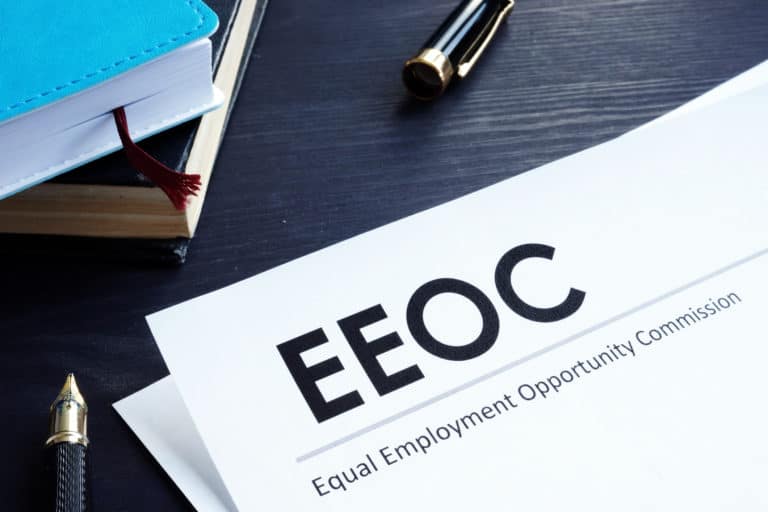
Sarah Leadem is a joint degree candidate at Harvard Law School and the Harvard Kennedy School of Government.
Fertility benefits are on the rise in American employee benefits packages. In vitro fertilization (IVF) coverage rose steadily in the last five years for both medium and large employers. Facebook and Apple were first movers in covering egg freezing in 2014. Now, employers like Salesforce and Spotify offer surrogacy coverage up to $80,000. LGBTQ couples, however, have found themselves excluded from coverage for the fertility treatments that are being extended to their heterosexual counterparts.
The source of this exclusion comes from the requirement of many health insurance policies that an individual be diagnosed as “infertile” in order to access coverage. Under many plans, infertility is defined as failure to conceive after 12 months of unprotected heterosexual sex or after 6–12 cycles of therapeutic donor insemination.
For same sex couples, this definition leaves only one option: 6–12 cycles of insemination. Without insurance, these treatments are prohibitively expensive: A single intrauterine insemination (IUI) cycle can cost over $5,000 while the average IVF cycle costs up to $25,000 with medication. Put bluntly, heterosexual couples can be eligible for insurance coverage after a year of trying to conceive — at no monetary cost. But under current insurance policies, same sex couples must spend at least $30,000, and often more, before any insurance kicks in.
This is an increasing source of concern for LGBTQ advocates. Some label this a “queer tax” and argue that fertility remains defined in heterosexual terms. In September 2021, advocates filed the first major lawsuit against an insurer for this policy: The National Women’s Law Center and civil rights firm Emery Celli Brinckerhoff Abady Ward & Maazel filed a class action lawsuit against Aetna for its discriminatory treatment of LGBTQ couples. Aetna quickly disavowed the prior denials of coverage and announced it would provide immediate coverage, pursuant to a recently passed New York law.
However, apart from legal action against insurers, what is role of employment discrimination law in this legal landscape? Specifically, can employees now sue their employers under Title VII following the Supreme Court’s decision in Bostock? There is reason to believe a legal challenge could be viable. The posture of the EEOC and the courts on sex-based discrimination in employee health benefit packages together with recent challenges under Bostock may lay the groundwork for successful legal action.
Title VII
Title VII of the Civil Rights Act of 1964 bans employment discrimination in “compensation, terms, conditions, or privileges of employment” on the basis of race, color, national origin, sex, or religion. This includes discrimination in fringe benefits, including employer-provided healthcare plans. In 2020, the Supreme Court ruled in Bostock v. Clayton County that Title VII’s ban on employment discrimination “on the basis of sex” includes discrimination based on sexual orientation or gender identity.
While attention has been paid to Bostock’s implications for mainstay employment issues such as hiring, firing, and compensation, there are also implications for employee benefit plans. Employment lawyers and benefit advisors warned of the overlooked “benefits implications” of Bostock, especially for employer-sponsored healthcare. Justice Alito, in his Bostock dissent, anticipated this very impact: “Healthcare benefits may emerge as an intense battleground under the Court’s holding.”
It is well established that Title VII prohibits sex-based discrimination in employer-provided healthcare benefits. The EEOC’s Compliance Manual instructs employers to ensure health benefits are non-discriminatory. Giving superior benefits to one sex over the other plainly violates Title VII (EEOC v. Fremont Christian School), including for employees’ spouses.
The Supreme Court most directly addressed sex-discrimination in health insurance plans in Newport News Shipbuilding & Dry Dock Co. v. E.E.O.C.. In Newport News, the employer-provided health plan provided female employees with hospitalization benefits in case of pregnancy-related medical conditions but denied those same benefits to the spouses of male employees. First, the court ruled that fringe benefits, such as healthcare benefits, count as compensation under Title VII. Further, the court found that the employer’s specific benefits policy discriminated against male employees in violation of Title VII. The court’s decision turned on the fact that a male employee at the company was treated in a way “which but for that person’s sex would be different.” That is, access to the health benefit differed based on the sex of the employee. Newport News remains a widely cited authority on sex-based discrimination in health care plans.
The Landscape Post-Bostock
With Bostock now in place, the logic of Newport News could be readily extended to fertility benefits on the basis of sexual orientation. Just as in Newport News, it could be argued that, for purposes of fertility benefit coverage, an LGBTQ employee seeking fertility treatment is treated in a way which, but for their sexual orientation, would be different. Newport News also provides strong precedent for holding employers (apart from insurers) liable for Title VII violations based on the coverage and eligibility requirements of their employee health benefits plans. The court’s posture on sex-based discrimination in healthcare benefits under Title VII, particularly under Newport News, may support future challenges based on sexual orientation.
Following Bostock, there have been legal challenges to employee healthcare plans although they have mostly focused on transgender health services. In 2020, a U.S. District Court in Arizona held that a state insurance policy that excluded gender affirmation surgery violated Title VII (See Fletcher v. Alaska). A trial is currently pending in the case of Toomey v. State of Arizona in which a public university professor was denied a hysterectomy as part of his gender reassignment treatment.
In April, a New York same-sex couple filed what may be one of the first EEOC complaints on this issue. The couple, which includes a city employee, was denied IVF coverage for surrogacy because of the definition of infertility used by the New York City’s employee health plan. The couple has warned of a future class-action lawsuit.
What is the solution for employers wanting to ensure equal access? The most direct solution is to grant immediate coverage to individuals who cannot conceive due to sexual orientation. This was the solution adopted by New York state: a 2021 law mandates that insurers cover basic infertility treatments, particularly IUI, to those “unable to conceive due to their sexual orientation or gender identity.” This does not come without challenges. Under Bostock, this change could be challenged by heterosexual individuals urging discrimination on the basis of sexual orientation given they still have to wait at least a year before accessing insurance coverage. The New York law also allows insurers to first exhaust the “basic fertility treatment” of IUI before trying IVF. This may not fix the problem for same-sex couples, depending on their family-planning goals. (For example, if a lesbian couple wants to conceive with an egg from the non-birthing partner, the only option is to do IVF followed by implantation).
The growing prevalence of fertility benefits in employee benefit plans brings with it concerns over the discriminatory treatment of LGBTQ employees. This most recent EEOC complaint could be the first test case. It stands to be seen whether the court’s existing Title VII jurisprudence in a post-Bostock world will support claims of employment discrimination on the basis of sexual orientation in employee benefit plans.










Daily News & Commentary
Start your day with our roundup of the latest labor developments. See all
February 20
An analysis of the Board's decisions since regaining a quorum; 5th Circuit dissent criticizes Wright Line, Thryv.
February 19
Union membership increases slightly; Washington farmworker bill fails to make it out of committee; and unions in Argentina are on strike protesting President Milei’s labor reform bill.
February 18
A ruling against forced labor in CO prisons; business coalition lacks standing to challenge captive audience ban; labor unions to participate in rent strike in MN
February 17
San Francisco teachers’ strike ends; EEOC releases new guidance on telework; NFL must litigate discrimination and retaliation claims.
February 16
BLS releases jobs data; ILO hosts conference on child labor.
February 15
The Office of Personnel Management directs federal agencies to terminate their collective bargaining agreements, and Indian farmworkers engage in a one-day strike to protest a trade deal with the United States.